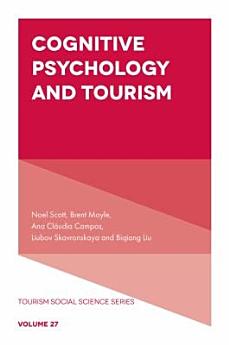Cognitive Psychology and Tourism
About this ebook
The work is arranged into five sections. Section 1 introduces the ‘Cognitive Wave’ and discusses the potential advantages and disadvantages. Section 2 introduces the mental processes central to cognition. Sections 4 and 5 provide examples of disambiguation, translating tourism concepts and theories into those of cognitive psychology.
Every chapter highlights relevant existing research and opportunities for further developments. Real-world examples of the application of theory and methods to tourism, hospitality, events, leisure, and service fields are provided. There are many opportunities for developing these, and other topics, further and in developing the work of the invisible college which underpins the silent shift to the ‘Cognitive Wave’.
About the author
Noel Scott is Adjunct Professor of Tourism Management, in the Sustainable Research Centre, University of Sunshine Coast, Queensland, and at Edith Cowan University, Western Australia, and at Mataram University, Lombok, Indonesia.
Brent Moyle is a Professor of Tourism in the Department of Tourism, Sport and Hotel Management and the Griffith Institute for Tourism at Griffith University, Australia.
Ana Cláudia Campos is currently Assistant Researcher at CinTurs, Research Center for Tourism, Sustainability and Well-being, University of Algarve, Portugal.
Liubov Skavronskaya is a Lecturer of tourism, sustainability, and academic literacy at Griffith College, and a Research Assistant at the Creative Arts Research Institute, Griffith University, Australia.
Biqiang Liu is a PhD candidate at the Department of Tourism, Sport and Hotel Management, Griffith University, Australia.





